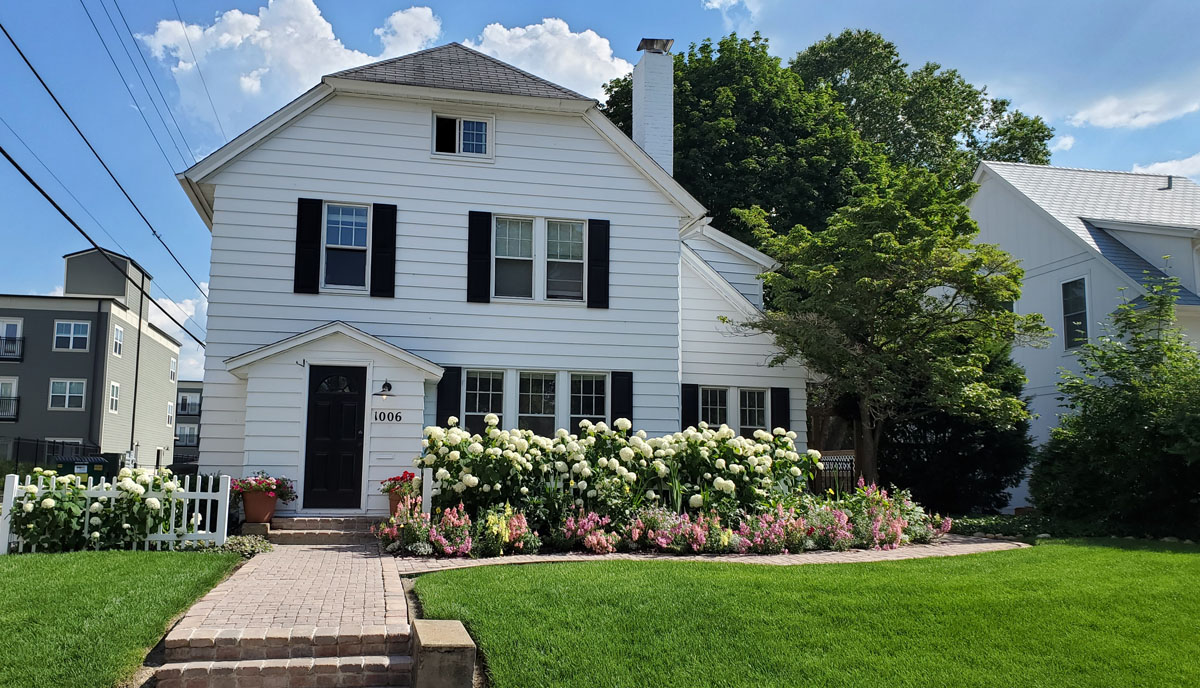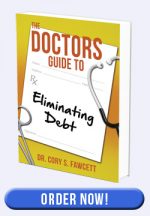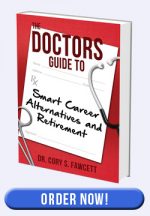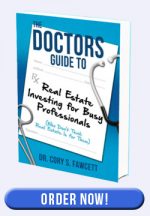I frequently hear people debating whether to pay off a home mortgage, which usually has a relatively low interest rate, or invest the money. Often the misguided answers to this question stem from only looking at the interest rate for the decision, as if it were the only valid variable. The following are the mistaken answers I repeatedly hear:
Never pay off a 3% debt.
Leverage low interest loans all you can.
Investing it for higher interest is a no brainer.
There isn’t a scenario where it makes good mathematical sense to pay off your mortgage.
Do the math: 6% vs. 3%. Enough said.
There is bad debt and good debt, and your mortgage is good debt.
If everyone followed these recommendations, they would frequently make the wrong decision. Interest rate is not the only variable to consider. There are other factors that are often ignored by those who only read about being debt free, but have never actually gone through the process of becoming debt free like I have. There is a big difference between book sense and experience.
I learned about the shortfalls of book sense when I entered my first live poker tournament in Las Vegas. I had played poker online with imaginary money for months, learned the odds of winning each hand and thought I was a great poker player because I was consistently winning the imaginary poker games. About halfway through the tournament, during a break, I spoke with an old guy who seemed to have played in many poker tournaments. I mentioned this was my first tournament. He surprised me when he said, “Yeah, I know.”
How could he know I was a rookie? Because I was making a lot of rookie mistakes which the experienced players had learned to avoid. The same way all experienced people can spot rookies. Doctors who have been in practice for years can easily spot a doctor who just finished residency. They stand out for their lack of real-world experience. I asked the experienced poker player what I was doing wrong. He commenced to tell me about all the things I had done in the last two hours that gave it away. None of the advice he gave me was in any of the books I read about poker.
That’s the way it is in life. You can’t get all the information you need about a subject by reading it in a book or doing the math. There are additional things you need to put into the equation that you don’t realize until after you have lived through it. This is when the other important variables that aren’t in the books are revealed.
The following are some additional variables to keep in mind in order to see the whole picture before answering the question about paying off a 3% home mortgage. I have lived both with a home mortgage and without one and picked up a few things along the way.
The Scenario
The following is a typical question I encounter almost daily, and is asked frequently by my coaching clients.
I, Toni, received a big chunk of money from a relative. It is just enough to pay off our home mortgage. We are getting close to financial independence. We already have our emergency fund fully funded, we are maxing out our retirement plans, and I would like to go to half-time as soon as possible. With our mortgage, which is our only debt, the half-time budget will be tight. I’m torn between investing vs paying off the debt. Our original loan was for $600,000 at 3% over 30 years with a monthly principal and interest payment of $2,529.62. We still owe $400,000. I want to pay off the house, but my husband keeps saying it’s a bad idea to pay off a 3% loan, we need the tax write off, and using leverage is smart. What should we do?
Is there a right answer? I think there is.
Cash Flow
Those whose tunnel vision is focused on the interest rate lose sight of cash flow. I learned the importance of cash flow when I began investing in real estate. It has the same considerations here.
Toni would like to work half-time but their current cash flow will not allow it. The house payment costs $2,529.62 every month. She is likely paying at least 33% of her income to taxes. Thus, she needs to earn $3,794.43 a month to have enough cash flow to make the house payment.
Paying off the house is equivalent to an immediate $3,794.43 a month raise ($45,533/yr). If she earns $227,000 a year, paying off the house creates the ability to take one day off each week without any financial ramifications.
If she invested her $400,000 in certificates of deposit paying 5% interest, it would bring in $1,667 per month on average, but she likely couldn’t collect the interest monthly. She would pay the 33% tax and be left with $1,116.67 a month cash flow. Far short of what paying off the house generates.
In fact, Toni would need to find an investment that would return a guaranteed 11.38% before tax to get the same monthly cash flow as she gets by paying off her house. It will be extremely difficult for Toni to find an investment that will beat the guaranteed cash flow she will get by paying off her house.
There is actually no tax write-off for her mortgage interest
Many people believe their home mortgage payment is a great tax write-off. In fact, Toni, just like 90% of the rest of America gets no tax write-off at all for her mortgage interest. We have been led to believe in a tax write-off that doesn’t actually exist for most Americans!
Toni and her husband, being a married couple filing jointly, will get a $27,700 standard deduction on their 2023 taxes. The interest on their remaining $400,000 mortgage balance at 3% will be about $12,000 this year. They will also likely get the maximum $10,000 SALT tax deduction (State And Local Tax deduction limitation). Their $12,000 mortgage interest deduction and the $10,000 SALT deduction come to $22,000. Since their $27,700 standard deduction is greater than their itemized deduction, they will take the standard deduction instead of itemizing their deductions. In doing so, they will not get any tax write off for their mortgage interest.
It is estimated that in the 2022 tax year 90% of taxpayers used the standard deduction. That means they were not able to write off any mortgage interest. Since about 63% of Americans have a home mortgage, but 90% of all taxpayers cannot take a mortgage interest deduction because they will use the standard deduction, there are a lot of people mistakenly thinking they get a write-off for their home mortgage interest.
We need to stop perpetuating the misbelief that people get a tax benefit from keeping their home mortgage, since most do not. Couples who do get a write-off, don’t get as much as they suspect since the first $27,700 written off on their Schedule A doesn’t count.
Bankruptcy
The risk of bankruptcy is zero if you have no debt. Bankruptcy is the action that happens when a person has no way to pay their debt. No debt = no chance of bankruptcy. It doesn’t matter if you acquired the debt from borrowing to buy a house or undergoing a medical emergency generating a large medical expense you can’t pay. Bankruptcy is about debt you can’t pay.
This is left out of the equation from those who talk about keeping the mortgage and investing the money elsewhere, possibly even in something super safe.
We have recently seen some banks fail. It happens from time to time. Banks can get over extended just like people do. When you are over extended and can’t cover your bills, bankruptcy happens. What happens when your super safe investment was in a bank that declared bankruptcy?
Your savings is FDIC insured up to a point. But that money will likely be accessible after a waiting period as the insurance payments get sorted out.
Investing the money is not guaranteed
Many people will tell Toni she should put the money somewhere to earn more interest than she is currently paying on her loan. If she leaves it there for the life of the home mortgage, she will be slightly better off mathematically than if she used the money to pay off her home mortgage.
Unfortunately, this is not how the scenario usually plays out. If Toni pays off her mortgage, she gets guaranteed results for many years. But the money that gets invested at a higher interest may not have such a good outcome. If something comes along and we see that big chunk of money just sitting there, we may decide to use it for something more “productive” than earning interest. So, we buy a boat, a new car, a vacation home, pay for a wedding or take a fantastic trip.
Now the side of the equation that is collecting “higher” interest isn’t collecting any interest at all. This is the problem when both sides of the equation are not real. Paying off the mortgage locks in a return that investing the money does not.
The power of now
If I ask which is better to have $10,000 now or $10,000 later, almost everyone will say having the money now is better. Now has a lot more value than later. Using the $400,000 to pay off the house has an immediate effect on Toni’s pocketbook. She gets the immediate effect of having a $3,794.43 a month raise, by no longer needing to earn the money to pay the mortgage payment and the income taxes. That is a raise of $45,533.16 a year. Many people would uproot their family and move for a $45,000 a year raise.
Taking the option to keep the mortgage and put the money in an investment paying higher interest is based on letting all of the money ride until the mortgage is paid.
This assumes you will continue to pay the house payment at the lower interest rate and keep the investment at a higher interest rate so that many years from now you will have a slight difference in net worth. By then your net worth will be so large that the difference between the two options will not likely matter.
We must find a balance between having financial effects now vs later. We can’t stop going on vacations simply because saving that money instead of spending it on a vacation will increase our future net worth, allowing us to be able to retire sooner and go on more vacations later in life. Vacations can’t all be saved up until we retire simply because it creates a mathematically higher net worth. With the logic usually used for paying mortgages early, there is no mathematically logical reason to ever take a vacation.
Making the assumption that the right answer is always the one with the highest net worth at retirement is missing the point of living life. Some money needs to be used now for enjoyment and some of the money needs to be saved for the future when we can no longer earn a living.
Using this money to allow Toni to switch to working half-time and enjoy her life and family more by working less will create a huge deposit into her happiness factor with minimal change to her future net worth. The bigger hit to her net worth will come from earning less income by working half-time, which Toni has already determined is an acceptable outcome. If she is willing to take that big financial hit, then the small one between investing vs paying off the house is irrelevant.
Both options, paying off the house or investing the money, have the exact same immediate effect on Toni’s net worth: It increases by $400,000. Paying off the house will then increase her happiness for the next 20 years. Investing the money will likely create a minimal increase in her net worth at retirement.
Since Toni has already almost reached FI and is ready to decrease her workload, the best overall use of this money is to help her achieve the lifestyle she has been working toward. This is the final move to push her over the threshold to realizing her goal.
That “good debt” is killing you
I think the most important argument is not about the amount of money gained, but about the power you gain from this opportunity. Toni says she wants to cut back to part time, but the household budget is currently too tight to allow her to take this step. If she paid off the house, she could comfortably switch to working part time immediately. That is power! She can’t switch to part time if she invests the money anyplace other than paying off the house.
She has the chance to make a big change in her life right now if she pays off the house, but she will have to continue to work and earn more money if she chooses to keep the house payment. Many people don’t catch hold of this concept. They are burning out at work because someone convinced them to keep their “good debt.”
That “good debt” may be all that is standing between having a long life as a part time doctor or burning out, which may lead to quitting and losing all their future income potential. That will be a far greater loss of money than you could ever gain from investing the $400,000.
I feel strongly that there is no such thing a good debt. All debt is a burden. Sometimes it is a burden we can live with, like the mortgages on my apartment buildings, and other times it comes with a very high price tag. In this case, keeping the “good debt” will keep Toni from switching to half-time and living her dream. Don’t let “good debt” get in the way of living a great life now.
I once coached a doctor who planned on keeping his home mortgage and retiring in five years. But if he used the cash he already had in the bank to pay off his house, he could retire immediately. He only needed to work the extra five years so his retirement accounts could grow enough to make the house payment with a 4% annual withdrawal. When he realized what paying off the house with the cash he had saved would allow him, he retired a month later.
If you are struggling with the issue of paying off your house vs investing, then get a copy of The Doctors Guide to Eliminating Debt and look at more than just interest rate arbitrage. When you include how you want to live your life in the decision-making process, you can make an informed decision. If you only look at the interest rate, you may make a mistake and miss out on a great opportunity that could have changed your life. Eliminate interest rate tunnel vision so you can see the whole picture.










Since It’s not generalized principle applies to everyone so Feels like more suitable title of the article would be, ‘Yes, cut off your working hours to half now’ . Because paying off mortgage will certainly generate some cash to make you feel you are making lot of money, which can make you feel not work full time easily.
In general I agree to pay off mortgage and generate more cash now, as long people are declined enough that extra cash is used for investing/risking for achieving higher purpose then just barely earning easy interest on it.
You are comparing the cashflow of “principle and interest” payments from mortgage vs. the cashflow from “interest only” payments in certificates. If you build a bond ladder with several bonds, 1 bond expiring each month for the remaining period of the loan, and use the interest from bonds plus the principle from the expiring bonds as cash flow for mortgage payments, you can easily generate $2500 per month for the next 17 years (remaining term of the 400k mortgage) for far less than 400k.
Regarding bankruptcy: If your mortgage lender sues you, they probably can only come after your home. If some other creditor sues you, they can come after your home equity and your other personal assets. In the event that you have paid off your mortgage, you can preserve your home equity only by borrowing on your home again (at a potentially higher interest rate). I don’t clearly see the protection afforded.
Why should I pay $180,000 to pay off our house, a building sitting on a piece of ground and withdrawing $180,000 to pay it off. It isn’t tax deductible with the standard deduction anymore. I can invest the $180K in CDs or other investments and make more than the 3.125% of the loan. It doesn’t make sense to pay it off to me.
Jim, I don’t know if you should pay off your house. The article is about the situation when the cash flow of paying off the house will make a significant difference in your life. You might indeed be better off not paying off your house.
The facts and only the facts – let’s do facts check.
Running strictly the numbers – all other issues like: cash flow; working time; timeline to retirement; buying things with extra cash flow or option for bankruptcy are personal preferences depending on individual needs and goals.
A loan of $600,00 at 3% needs a monthly payment of $2530 (rounded numbers for simplicity). In the case given, at remaining balance of $400,000, the payment is $1524 principle and $1006 interest. The interest part is a certain loss as the principal is an investment which may win or lose money when the house is sold. According to the amortization schedule, after 12 months, the interest payment is down to $959, total interest pay $11,816, the principal payment is up to $1566, total principal pay $18,539.
Investing $400,000 in 1 yr Tbills at current average rate return of 5.24% (https://www.bankrate.com/rates/interest-rates/1-year-treasury-rate/) would generate $20,960.
Hence, right now, investing in the most secured way, would generate yearly net interest income of $9,144 (20960-11816) compared to the loan interest coast. This income is about 50% of the needed yearly principal pay (18539). Conclusion – investing in current 1 yr TBills rate pays off the interest and one-half of the principle on a loan of $400,000 at 3% interest rate!
All these calculations are without tax considerations. In the case given, there are assumptions that the tax rate is at least 33% and income is $227,000. According to https://us.icalculator.com/tax-calculator/annual/2023.html the federal taxes on $227,000 for a family filing jointly are $34,632, not 33%, but only 12.25% actual federal tax rate! The highest tax bracket is 24% but this is only for income above $190,750! Including the FICA (6.2% up to 160,200) and Medicare (1.45%) taxes, total taxes are $47,855, which is 21% actual total tax rate, still not even close to 33%. Note – state tax rates vary from 0% to max 12.3% with various brackets, but this is irrelevant when investing in TBills which are state tax exempt.
In the given case with income of $227,000, the actual total tax on the profit of $20,960 from TBills is 47855-42769=5086 (227000-20960=206040, which generates total tax of 42,769). Hence, on the income portion of $20,960 from TBills the total tax is $5,086 (24.3%).
In summary – $400,000 invested in current 1 yr TBills average rate of 5.24% would generate 20960-5086= $15,874 net yearly income after taxes on $227,000 income (filing married jointly). Paying off $400,000 loan at 3% interest, would cost $11,816 in yearly interest. Investing vs paying off, 15874-11816= $4,058! The last one decreases by ~22% the needed yearly principal pay of $18,539!
Thanks Ross for doing all the math that makes my point that Toni has better cash flow (money in her pocket this year) by paying off her house. So to summarize your calculations for the next 12 months:
After tax cash flow change for using the money to invest in T-bills: $15,874
After tax cash flow change for using the money to pay off the house: $30,360 ($2,530 x 12)
She has almost double the cash flow by paying off the house.
Keep in mind that last year the T-bills paid half that and who knows what next year will bring.
Thank you for presenting this scenario and perspective. I think we underestimate that liberation from debt has a non-monetary value. I paid my student loans off from inherited money with a 2% interest rate and I was euphoric.
I had a question about one assumption — would they not be taxed at capital gains rates on their income from a hypothetical CD?
A modeled some of the math for fun. Based on the data provided she has about 17 years left on her mortgage.
— If she continues to pay the mortgage as is, she will pay about $110k in interest over the life of the mortgage.
— If she were to draw down her 400k to make her monthly mortgage payment, so she could work less;, hypothetically earning 5% over the 17 years, she would be left with 120k in the bank.
— If she invests the 400k over the 17 years and earns 5% she would add about 500k to her balance (900k total). Her net in this scenario if she does not pay off her mortgage today is 400k (900-400 mortgage +100k interest) in 17 years.
— If she paid off her mortgage today and saved the amount she was paying in her mortgage on a monthly basis over the 17 years and earned 5% she would save about 500k and earn about 300k in interest for a total 800k. Factoring the 400k she paid 17 years prior she would have netted 400k.
If we take the perspective of which scenario would make her better off financially in 17 years:
— if she does not change her schedule (which I do not agree with philisophically) she could have 900k in the bank in 17 years if she continues to pay off her loan at 3% and earns 5% on her 400k
— if she pays off her loan today, but again does not change her schedule, but instead saves her mortgage payment monthly she has 800k in 17 years. She pays a 100k tax for the peace of mind of being free from the mortgage today
— If she uses her 400k to pay off the mortgage monthly and invests the balance at 5%, while working less, she would have 120k in the bank in 17 years
— if she pays of the mortgage today, works less, and does not save any of the “raise” she gets from paying of the mortgage, she has zero in the bank in 17 years,
I am not trying to disagree with the argument presented, but I think the time value of money data is important when making a financial vs lifestyle decision. Some people might be willing to compromise on their schedule for a period of time for future income. I also think that it is important that people know that their mortgage payments while burdensome are a means of forced savings and that if they pay them off and do not invest the savings there are huge financial implications.
Sudeep, There is a big difference when we consider which is mathematically better in 17 years (interest) vs which is better today (cash flow). Also you left out that if she keeps working she will have 17 years of greater earnings from her salary to consider. If she invests the money and keeps working she will be much better off in 17 years than if she pays off the house and cuts back at work. But we must keep her goals in mind. She wants to cut back her work. Just asking how she will be in 17 years leaves her goals out of the picture. If she keeps working and burns out and quits altogether, instead of working half time, that is yet another scenario which will likely be worse than the other two.
My father used to preach that remaining in debt keeps a person engaged in work, generating income, and continuing to pay off investment debt, which should lead to budgeting money more tightly and reducing money available for frivolous spending. Avoiding debt on vehicles, toys, and travel is paramount to accumulation and a more predictable retirement. It’s worked pretty well for me. I found the situational argument of this article quite valid, and substantiating the recommendation of my accountant to pay off our home mortgage with a 2.4% interest rate, especially as inflation and investment prices remain inflated. Thank you!
Thanks for your story and you are welcome. My life was also changed by paying off my house 22 years ago. I would take that path again.
You’re only considering half of the equation. Yes, it’s an emotional relief to be free of a monthly payment. But what about the other half of the equation—-THE EARNINGS! By paying off the mortgage early a person loses the earnings opportunity of the cash in hand. You keep ignoring that fact. Facts, Facts, Facts!
The income tax deduction on a mortgage is a diversion. It’s nice when you can get it, but that’s not the issue. The issue is the bottom line!
You are cherry picking the situation and attempting to generalize it. For the vast majority of people, don’t pay off early!
Incidentally, as a widowed person filing singly, I have my own strategy—Itemize every other year. During those deduction years I give heavily to charities and deductible causes. in the other years I take the standard deduction.
My advice to everyone—Talk to a good CPA. Even better, a certified financial planner who charges by the hour.
I did consider all the facts. This is why I wrote the article, because too many people get “Interest Rate Tunnel Vision,” and ignore the other factors. I not only didn’t ignore that fact, I stated in the article that if she did not pay off the house and invested the money then “…she will be slightly better off mathematically than if she used the money to pay off her home mortgage.”
I did consider that fact. I also had to make that choice two decades ago for myself. But now that I am actually living in my retirement years, off my retirement savings, it has become clear to me that if I had invested for higher interest instead of paying off my house 22 years ago, the additional money I would have earned would not do anything to change my life today. If I had the slight increased net worth that decision would have made, the actual change it would make in my life today is my giving to charity would be slightly less now. (Most physicians die with a lot of left over money they never got to use.) But when I paid off my house, at that moment it changed my life for the better in multiple ways, just like it will for Toni. I have written about that fact in my life before. I also have told the story on many podcasts.
FACT: If Toni’s pays off her house, she will live a better life starting right now. She can switch to working half-time right now and have years of benefit from this single decision that will effect not only her, but her entire family.
FACT: If Toni invests the money instead of paying off the mortgage, she will have a bottom line net worth in retirement that will be slightly higher. Unfortunately it will not be higher enough to actually make any difference in her lifestyle during her retirement years. The increase you are wanting her to get will be insignificant by then.
FACT: I have yet to have a coaching client whose life would be significantly changed during retirement because they played an interest rate arbitrage game by keeping their home mortgage.
So look into all the factors that will change with this decision. What will the decision change right now as well as what it will change in the future? If you think her retirement accounts might have $X more money by the time she retires, will her life be significantly better with her retirement savings + X? The answer will likely be no, it won’t make a difference.
Do the math like I did and see what you come out with. Years of better life now vs a slightly higher net worth when retired.
I do take advice from a good CPA. And he keeps asking me how he can convince his clients to stop carrying so much debt. It’s killing their retirement years as well as their current lifestyle.
By the way, your plan of itemizing your deductions every other year is a great one. Keep that up.
Using financial planners who charge by the hour is another great tip.
Thanks for your contribution to the discussion.
Paying off the mortgage is the right move:
Not only do you save the 3% interest – you are actually saving even more -because the way mortgage payments are structured, the first payments go almost entirely to paying interest and very little to paying down the principle.
Saving the cost of the 3% mortgage, depending on your income level and how long you have held the mortgage, is the equivalent of earning 4-5% interest guaranteed and tax free PLUS the improved cash flow. With the improved cash flow, you can then proceed to invest with regular allotments over time which prove to be the most effective wealth building strategy for the vast majority of us who are not financial geniuses with large amounts of good luck.
If you pay off your mortgage early and for some reason need to access a large amount of cash later, you have the option of taking out another mortgage.
Sorry but I disagree with your overall premise. In the majority of circumstances you are financially better off keeping that loan as long as possible. Also, bankruptcy is a common debt forgiving tool used by the most successful business people in the world and again depending on circumstances may be a better financial option than no debt at all. For me the ONLY advantage of no debt (and I have none) is psychological.
The person in the story who wanted to cut back on work now was a lot better off getting rid of the debt than she would be if she kept the loan as long as possible. Using bankruptcy as a “tool” to welch on your agreements is unethical. There are a lot more advantages to no debt than psychological, I have lived in both worlds. Ever since I wrote The Doctors Guide to Eliminating Debt I’ve been hearing people try to convince me that debt is so good. Debt is not your friend.
So I have thought long and hard about this exact dilemma, and at least now when returns are high, you can achieve the same goal (having no mortgage payment) while preserving cash on hand and taking advantage of the difference in the interest rate. My suggestion would be to take the money and put it in a high interest money market and make the mortgage payments from that account. Since that would take care of the mortgage payment, Toni could still retire, but would also have the benefit of having cash on hand as well as earning interest. At payoff she would have a small rainy day fund. To do even better she could put a portion of it in a slightly less liquid investment earning a higher rate (although it would certainly come with some risk). At any point if she wanted to she could use the balance to pay off the remaining mortgage. Another point of interest is that once you pay off the mortgage, appreciation is on the entire value of the house. If you look at the current equity as a “cash investment” you are getting a higher rate of return on the equity in the house with a mortgage in place (leverage).
What about the argument for liquidity? If kids college costs needing to be paid at possibly full retail ( because of high income ) are looming within a year do you think it is wiser to wait until the college payments are done in say 5-6 years and then pay off mortgage just to hedge the possibility of not being able to cash flow the college costs even with enhanced cash flow of paying off mortgage?
Plan: invest funds in guaranteed short term treasuries until college headwinds are gone and then pay off mortgage so to avoid having to go back for a home equity loan in case things don’t work out with job income. Note: liquid Emergency
fund set up to cover monthly cash expenses for little over a year but with full retail college running at 75+k/year the numbers get huge from a cash flow standpoint.
Thoughts?
Thank you for any comments.
I think it would be wiser to pay off the house. I did pay for college for my kids at full retail because of my income. The old house payment I no longer had to pay was enough money to cover the cashflow of the college expenses for two kids. People are often wanting to be liquid. If you want to be liquid, stop buying stuff you have to borrow money to purchase and you will have a lot more cash. You won’t have to pay for the item or the interest and can keep your money earning interest. Borrowing is simply a way to buy more than you can afford when you want it now. We shouldn’t give it more credit than that. Anytime you need more cash, if your home is paid off, you can always borrow more.
Cory,
Thanks for your comments. I am more in your camp regarding paying off the house than not. Our first home( smaller) was paid off in 6 years. We sold that one and moved into-you guessed
– a larger home( mistake now seen) 5 years ago. I am eyeing up paying it off now. I like the feeling of not having debt vs having debt. However, it is funny having debt on our rental property does not bother me as much( probably because the tenants are paying for it, not me)
What are thoughts regarding this recent article?: https://knowledge.wharton.upenn.edu/article/should-i-pay-off-my-mortgage-early-in-this-economy/.
The guy says, that if you have an any mortgage rate lower than 4.5% that you are basically leaving money on the table with Gov’t treasury yields where they are and the safety of those yields.
What is break even point after taxes? Paying off the mortgage is after taxes, right? He talks of opportunity cost. For the most part itemizing on tax returns is gone with the standard deduction so high. What happens after say 5-10 years of fixed treasury yields or 2 years for that matter? Wouldn’t you have to go back in and buy more safe treasury yields at who knows what rates then? 30 year treasury yields are not at 4.5% currently. Shouldn’t the yield comparison be to the 30 year yield now for an apples to apples comparison.
Thank you again for your thoughts.
Mike
Mike,
I don’t agree with his idea that the only factor to consider is interest rate. I like to look at both interest rate and cash flow. In any given situation, one will be more important to you at the time and then it is best to go with that.
Would your thoughts on this change if the loan was 2.25%? Or same reasoning applies? What if it was 1% interest rate (hypothetically)? Thanks for your writing, Dr. Fawcett.
No my thoughts wouldn’t change because they were never about the interest rate. Taking on debt, even at zero percent interest, still adds an obligation for you to earn money to pay it back. The obligation is the same. Interest rate only changes the final price tag. Sometimes even zero percent interest is still too expensive.
Except that you keep ignoring the fact that as long as a portfolio generates the necessary income to cover your spending, including your mortgage payments, then it’s a wash. That’s what cash flow actually means—income > than expenses and you win, income < expenses and you lose. You can get into debates around the quality of the portfolio, its ability to generate the needed income in a down market, etc, but those are distractions. The core of cash flow remains the same—if I can generate the needed income to cover my expenses including a mortgage, why should I care if I carry the debt?? I do not plan on living in my current home until I die; it’s a great property, 10 acres on a mountain with amazing tranquility, views, AND nearby access to a major metropolitan area (15-30 minutes away, depending on what I want,) but at some point it will be bigger than I need and too much work to maintain as I age, and then I will sell and downsize, and buy my next home with cash. And given the qualities above, selling will be easy. So why should I give up the opportunity cost of investing to pay off my 3%?
It strikes me that you are making a “one size fits all” argument in an area where one needs tailored advice specific to their situation.
No, this is not a one size fits all article. It is very clearly answering the question for Toni, who wants to cut back to part time now but her budget is too tight. Don’t pretend this is the answer for your situation, which is different from Toni.
When we started talking about retiring, cash flow was my biggest concern. We had enough in cash & investments to continue paying the mortgage until term or pay it off directly, but elected another path.
The plan was to retire and live off taxable assets until RMD age, using the interceding years to move assets from 401(k) to Roth 401(k) assets with our in-plan conversion feature. The biggest cash drain was a payment on a 12 year 4% mortgage. Investments were earning around 7-9% These investments were distributed between 401k, 401k Roth, Roth IRA, and taxable accounts. Roth conversions are taxable events, but being retired meant my current taxable income was now much lower than when working, as was the marginal tax rate.
We took out a 401(k) loan to cover the balance remaining on the mortgage, as the balance was below the IRS loan limits. This is another “no-no-no! You are never supposed to borrow from the 401k plan.” In this case, we chose to do this and retire the 4% mortgage in favor of a 6% 401k loan/5 year repayment quarterly installments with quarterly payments lower than the previous monthly payments.
The repayment source is the invested taxable funds, incurring a capital gains tax cost and then repurchased within the 401(k) plan as tax deferred funds, plus the interest, resulting in a net movement of taxable investment funds into tax deferred 401(k) funds. The mortgage is paid off, the debt obligation/cash flow is now to our retirement funds. The main risk of this plan is the loss of appreciated gains within the 401k, but is offset by the same funds in the taxable account except for the capital gains tax drain, which in itself is offset by the use of appreciated pre-tax money to pay off the mortgage.
This gives us good flexibility, preserves cash flow, allows control over taxes, and allows us to move unneeded after tax investments into tax deferred assets, and continue our present plan of using the 401k In Plan Roth Rollover feature, until RMD hits, or the tax cuts expire in 2025. Or, we can elect to take some or all of the remaining “mortgage” balance as a distribution and pay the tax on it.
The hypothetical seems skewed by the huge windfall that dropped into Toni’s lap. The much more common scenario would be throwing an extra $1000 a month toward your mortgage versus investing it in a taxable account. Although it’s true you are still earning a guaranteed rate on the debt pay-down and the loan may be paid off 5-8 years earlier, it may still be a decade before the cash-flow benefit of the paid-off mortgage materializes.
Instead, you could use a strategy like the mortgage payoff side-fund. If you earn a couple of extra percentage points over the mortgage rate you can pay off the loan sooner even after paying LTCG tax and start enjoying the cash-flow benefits sooner as well. I admit that this requires some discipline, but not much more than committing to pay extra on the mortgage each month.
Interesting thoughts, but I have to disagree with some points. The decision to retire early or switch to part time should be completely decoupled from paying off the mortgage early: If you have a stack of cash, you can generate cash flow from it. It doesn’t need to be locked up forever. E.g. currently even 1-month T-bills will easily out-earn the 3% mortgage interest.
Also note on bankruptcy: Declaring bankruptcy is an option that you lose by paying off your debt. I’m not advocating to intentionally plan for bankruptcy, but generally having more options is better than fewer.
I do agree with the points that the difference may be negligible (between early payoff or not), and that cheap debt availability will increase likelihood of spending/consuming more.
You are missing the point of the article. There are times when cash flow is WAY more important than interest rate. There is no investment she can put the money into that will give her the cash flow she would get from paying off the mortgage. The mortgage payment is what keeps her from moving to part-time. You cannot decouple this from when you retire early. Your entire retirement date is based on having enough cash flow to pay the bills without working.
The bankruptcy statement makes no sense. When you don’t have debt, you don’t need the “option” of declaring bankruptcy.
The bankruptcy statement makes sense to me. Bankruptcy is a tool often used by the most successful business people to have debt forgiven. While declaring bankruptcy sounds like a drastic maneuver it does make sense depending on the circumstance.
Just as there are circumstances where paying off a 3% mortgage makes sense there are also circumstances where having debt and using the bankruptcy laws as a tool to have that debt forgiven makes better financial sense than having no debt in the first place. I have no debt but I sure wish I had taken out a home equity loan when rates were much lower and put it into a safe interest bearing investment. For me the ONLY advantage to being debt free is psychological.
You seem to be trying to make your point twice. There are lots of advantages. If debt is so good then you should go get a home mortgage now before the interest rates raise even higher. You can always find something promising to pay you more money than the interest on your mortgage. I suspect the reason you did not get a mortgage on your home when interest rates were at a historic low, is because you knew you were better off without the mortgage. Otherwise you would have one now. Your action of staying debt free speaks volumes.
My apologies, when I entered my comments an error code came up so I actually made my point a third time thinking that the first 2 didn’t post.
Sorry but you are making assumptions based on speculation. If I have a guaranteed 6 or 7% investment then I will run to the mortgage company to get as much 5% money that they will give me. The corollary here is that Toni has a 3% loan and can put it in a CD or money market account at 4.5% plus.
Toni would have to find a CD paying 11.38% interest to give her the same cash flow as paying off her 3% Mortgage will generate. The point isn’t about interest rate returns, it is about the cash flow generated by paying off a house and how that can change a life. One must always consider the cash flow when making the decision. Sometimes the additional cash flow carries way more weight/power/life changing effect than any interest rate differential.
Great points about paying off the mortgage early. I myself paid off my mortgage (was a 30 yr at fixed 5.625% I had taken out in 2005) and the weight off my shoulders was removed completely.
The only compelling argument for keeping a mortgage that I could come up with is due to money debasement. We all know the value of the dollar is eroding thanks to inflation. So theoretically the mortgage payment I would have made 15 years from now would be worth less than the one I would have paid today (so by paying off the mortgage early I am giving the bank more valuable dollars). Curious to your thoughts on taking this into account
That argument isn’t much different than making a little bit more interest if you invest it. Same effect. I feel cash flow today and reaching dreams sooner trumps them both.
While I get what you’re saying regarding the loss of value in the dollar due to inflation, the same inflation racks up your property tax and further increases your monthly expenses when added to the monthly mortgage. With the mortgage paid off, the rising property tax is easier to handle